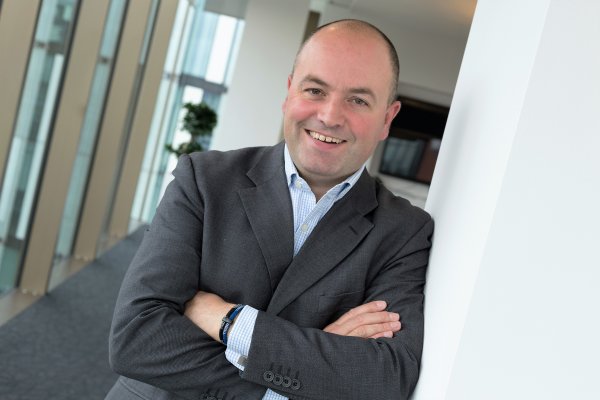‘Edginess’ key to entrepreneurial spirit says Holroyd

ENTREPRENEUR, philanthropist and High Sheriff of Cheshire Bill Holroyd will not be among the millions watching BBC2’s Dragons’ Den on Sunday.
The 62-year-old founder of Oldham company Holroyd Meek, which since its launch in 1984 went on to become a £200m firm and is now branded Bidvest, hates the way the TV show treats people with new business ideas.
“Those people (the participants) should be put in cotton wool and encouraged and to make fools of them for the entertainment of the viewing public is awful,” he told TheBusinessDesk.com in a rare interview.
Holroyd now spends his time advising and helping start-up businesses, some of which he has invested in, including Bolton success story AO.com, the online white goods retailer floated in 2014 with a £1bn-plus market capitalisation,
“AO.com has been the most spectacular success of the businesses I have been involved in,” he said, hailing its founder and chief executive John Roberts.
“The guy launched his business from his garage in Bolton and I could absolutely tune into him.
“He was fantastic. The guy just had the X-factor, the naughtiness that you look for in a businessperson – unconventional, loved winning, worked hard and he knew the sector.
“If you’re going to be conventional, convention dictates you’re always going to do what’s always been done.
“But you’ve got to be a bit of an outlaw. I was expelled from school (Keswick School in Cumbria) because I hated the rules. I just couldn’t see any point in them. I used to say ‘why shouldn’t we do that?’, ‘Why do you have to get your hair cut?’.
“If someone’s a bit edgy, quite difficult to deal with, mercurial, difficult company, but they’re winners who hate losing, it means they are likely to be successful.
“But you look for that naughtiness, that edginess.”
Holroyd, who is also chairman of national charity Onside Youth Zones, launched from the highly-regarded Bolton Lads and Girls Club, is an advocate of start-ups getting as much help and support as possible, based on his own experience when he tried to launch Holroyd Meek, a food service distribution company, in Rochdale.
“We were a young business, scared to death,” said Holroyd. “We started in 1984 in Rochdale in this funny little farmhouse with a really national/international good idea with two employess. All we needed was help, but the council said ‘no, no, there’s nothing’.
“But you go over the border to Oldham, and they said ‘we can help you – premises, funding, employability, the whole thing’.
“They got 2,000 employees – families – with food on their table in Oldham because they’d attracted us as a business and they’d given us that help.
Holroyd was speaking after officially opening the newly-completed £8m hub for SMEs, The Base, in Warrington.
“Nothing like this existed then (when he launched Holroyd Meek),” he went on. “We sold it to Booker in 1995 and we still owned 100% of the business, so we had no venture capital money.
“We had started with £6,000 and just growing that was difficult. It’s actually easier to go from 1,000 employees to 2,000 than it is to go from one to two. The growth was just insane.
“When I sold the company, I didn’t really know what to do. It needed a bigger company, when Booker bought it, then it became 3663 and nowadays it’s Bidvest.”
After his 12 months’ office in the Royal appointment of High Sheriff, Holroyd, who received a CBE in 2012, is intending to return to helping start-up businesses and encouraging budding entrepreneurs.
“I will see anyone, because anyone saw me when I was starting up,” he said. “I don’t invest in everyone, but if I can give good business advice I will tell them to keep hold of their shares until the last possible minute.
“Businesses seem determined to give them away. It’s an example I would give to any start-up – ‘don’t give it to Uncle Fred because he gave you a fiver’. Get a loan. Don’t give it to the first employee you have. Keep it very close, because that is the blood of the business and you always end up regretting it.
“There seems to be an irresistible desire to give all the shares away to start with, like I did. I had to get them all back and it was very messy.
“If you’ve got no shares left, you can’t incentivise your staff, because you’ve given them away to people who aren’t involved in the business any more.
“I will always look at their business and give what advice I can. After that process you have to be kind to these people and not over-promise. But your antennae are twitching if you’ve got the real deal in front of you,” he added.







